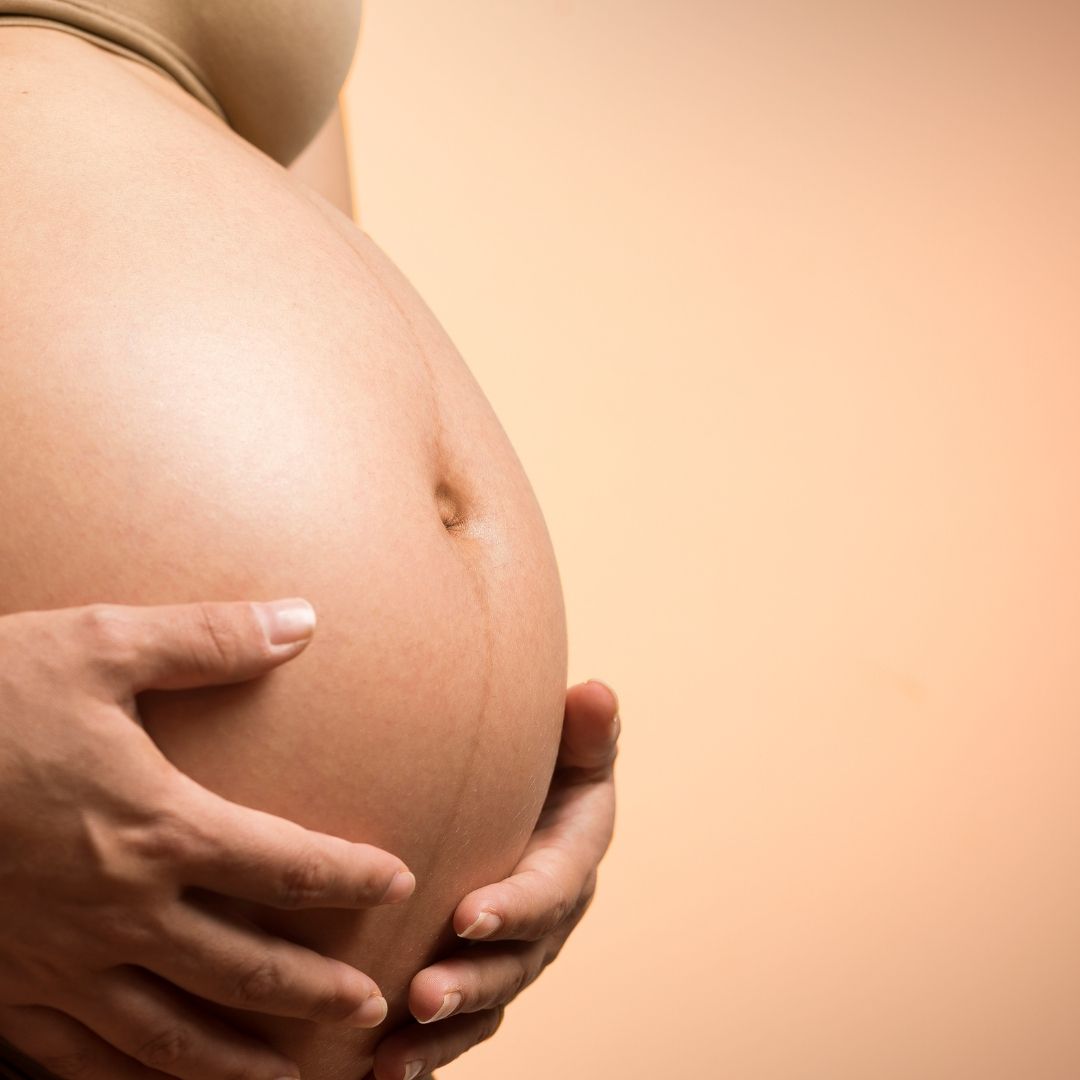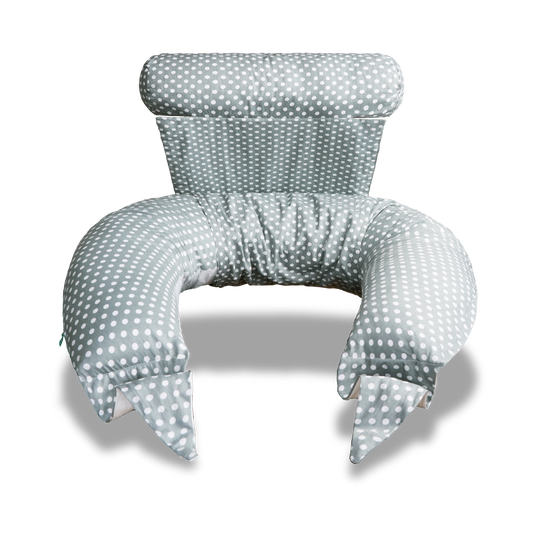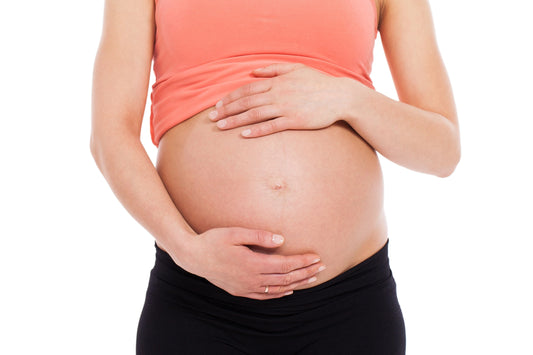Swollen hands and feet in pregnancy are very common life companions. Of course, those nine months are a magical period full of new sensations that alternate one after the other waiting for the baby to arrive. Most are pleasant, but some can be annoying - like swelling of the peripheral limbs, in fact.
Generally this is nothing to worry about, but we know it can make you feel uncomfortable. That's why we thought of sharing some simple remedies with you that you can put into practice right away. First of all, however, let's try to understand why this phenomenon is so frequent and when it must ring an alarm bell.
Why do hands and feet swell?
Swelling hands and feet, technically called edema, is generally due to fluid retention in body tissues. This, in turn, is a phenomenon that varies over the months because it is linked to the changes that pregnancy brings.
The factors that make your hands and feet swell are of several types:
-
Hormonal
Estrogen, progesterone and other hormones are produced in increasing quantities during pregnancy. Their goal is to prepare the body for childbirth, making the tissues softer and the joints more elastic. How do they do it? Making him forfeit fluids, which tend to accumulate even where they are not needed ... for example in the peripheral limbs. -
Biochemical
Col progredire della gestazione, la componente liquida del sangue (il plasma) aumenta rispetto a quella proteica. -
Vascular
The blood vessels dilate and become more permeable: in addition to taking up literally more space, they facilitate the passage of the liquids mentioned above from the blood to the surrounding tissues. -
Mechanical
The weight of the uterus increases with the growth of the fetus (or of the fetuses if you are having a twin pregnancy), up to crush the veins and make it difficult to ascend the blood flow from the extremities to the heart. All this brings hands and feet to swell especially in the last trimester of pregnancy, particularly if it coincides with summer: the heat, in fact, dilates the vessels even more and further worsens blood circulation.
Swollen feet in pregnancy: when to worry?
As you can guess based on what you have just read, pregnancy edema is a completely normal phenomenon, annoying but not worrying, which resolves spontaneously a few days after childbirth.
In rare cases, swollen feet in pregnancy can be a symptom of gestosis, also called preeclampsia, a very dangerous condition for mom and fetus. If in addition to swelling you notice the presence of one or more of these phenomena, we recommend that you immediately contact your doctor:
- sudden increase in edema;
- swelling extended to the face or neck;
- headache, dizziness, blurred vision, tremors, tinnitus, abdominal pain or vomiting;
- presence of protein in the urine;
- blood pressure above the maximum values (140/90 mmHg).
In particular, the last two are a symptom of the connection between swollen feet in pregnancy and gestosis. However, this is an infrequent state which, if treated in time, can resolve itself without further complications.
Swollen feet in pregnancy: do it yourself remedies
How can the problem of swelling of hands and feet be prevented or curbed during sweet waiting? Fortunately, simple and effective remedies exist: here are 15 ideas to put into practice immediately.
- Reduce your sodium intake: simply use less salt when cooking.
- Instead, increase the levels of potassium, through supplements or diet: go-ahead for sweet peeled potatoes, bananas, spinach and other green leafy vegetables, legumes, yogurt and salmon.
- Avoid standing too long; if you are forced to do this, take a break from time to time to rest your legs.
- Do exercises to improve blood circulation, such as push-ups and foot extensions, or ankle circumctions clockwise and counterclockwise in sets of 10, repeated several times a day.
- Wear shoes suitable for swollen feet in pregnancy: they must be comfortable, with a large plant, without laces, maybe one size more than what you usually use.
- Even the clothes must be comfortable, without too tight elastic especially on the wrists, waist and ankles.
- Rest at least an hour a day with your legs stretched out and your feet raised above your hips; you can assume the correct position using a pillow for pregnancy and breastfeeding.
- When sitting, do not cross your legs.
- Do some exercise every day: a half-hour walk is enough to get your blood circulation moving.
- In summer, avoid being outdoors in the hottest hours and exposing directly to the sun; also remember to refresh your legs several times with cold water throughout the day.
- Use restful compression stockings to facilitate the rise of venous flow from the legs to the heart.
- Practice a daily massage on feet, legs and even hands if you feel them swollen; even better: ask a professional who performs a targeted lymphatic drainage massage.
- When you feel particularly swollen feet, treat yourself to a foot bath with warm water and coarse salt that has a slightly draining effect.
- Drink at least 2 liters of water a day: keeping yourself hydrated promotes diuresis and counteracts water retention.
- Do not use diuretic drugs, which instead lead to dehydration; for the same reason, avoid drinking too much coffee (which is also not good for the fetus for other reasons).
As we said, that of swollen hands and feet is a common and almost physiological problem in pregnancy. For this reason, it cannot be completely prevented. What you can do, however, to reduce water retention before it causes significant nuisances, is to act on nutrition. Try to eat healthy, low-salt and vitamin-rich foods: you must feed yourself adequately while keeping weight gain under control.
If you put our advice into practice, pregnancy swelling will be nothing more than a passing nuisance that you will hardly notice. Everything will pass when your baby arrives, allowing you to enjoy every minute of your new life as a mother.








